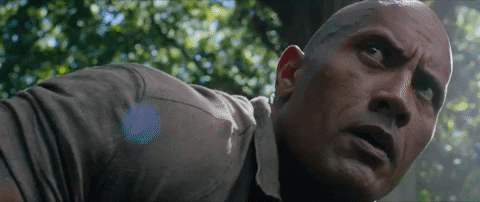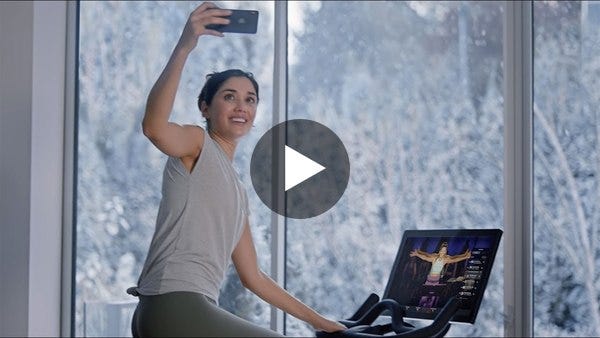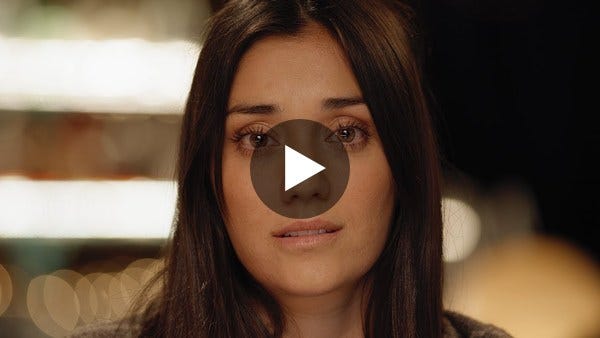Tippets by Taps - Issue #112
This week we look at Cyber Mondays continued rise, Chipotle’s good worker policies (and bad PR week), Netflix going big in India, Peloton’s ad snafu, The Rock and more. Enjoy!
Black Friday and beyond: A record 190 million Americans shopped – most of them online
Last week we talked about the lackluster day that was Black Friday and the likely fade into irrelevance for the day after Thanksgiving. Well, the Monday after Thanksgiving is certainly not showing any signs of slowing down. Consumers spent a record $9.4 billion on Cyber Monday. Consumers were spending $12 million per minute at its peak, with over $3bn of the spend taking place on smartphones. This Cyber Monday saw consumers spend $1.5 billion more than shoppers spent on Cyber Monday a year ago.
A record 189.6 million Americans went shopping over the five-day Thanksgiving weekend, the National Retail Federation said Tuesday, and most of them did their spending online.
The new bar represents a 14 percent increase from last year, the industry lobbying group said. About 48 million consumers shopped only in stores, 66 million shopped only online, and 76 million did both.
Chipotle enforces sick policy, reports no food safety issues since 2017
This week Brian Niccol, Chipotle’s CEO, announced the result of a significant change to their food safety and worker health policies. Following the 2017 norovirus outbreak, the company established new policies that include better sanitization processes and more food safety training. It also instituted a sick leave policy that paid out their employees (typically hourly workers) when they were sick to ensure people aren’t coming in to work despite being sick to earn their paychecks. It is a change that, quite frankly, more companies should institute to create a better work environment for their employees and to deliver a better experience for customers. Chipotle hasn’t experienced a major food safety incident since 2017. Unfortunately, the benefits of the policy change were overlooked as, during the announcement, Niccol said, “We have nurses on call, so that if you say, ‘Hey, I’ve been sick,’ you get the call into the nurse. The nurse validates that it’s not a hangover — you’re really sick — and then we pay for the day off to get healthy again.” Chipotle and Niccol got pilloried, accused of invading employees’ privacy via a draconian policy. According to a statement after the comment:
When an employee reports certain symptoms to their manager, the clinical nurse team at Zero Hour Health will follow up with those employees to understand their illness. Not all ill employees talk to a nurse, but all Chipotle employees receive paid sick leave from their first day of employment to use when they are not feeling well.
So, perhaps not as invasive as believed by the Twittersphere. Nevertheless, from PR positive to PR nightmare. Which is too bad really, considering Chipotle is doing right by their employee base including offering mental health and financial wellness benefits. Competitors would be smart to pay attention.
Netflix India: Netflix to spend Rs 3,000 Cr on content in India
India has long been considered a promising market for US companies given its size, English proficiency and digital penetration. Some companies have executed strategies well, others have struggled. The streaming wars have forced the major US players - Netflix, Disney, Apple, Amazon, and HBO - to figure out how to expand their market share and with over 1.3 billion people who love movies and tv shows, India is a crucial market for content creators. Netflix’s strategy now includes a massive push into South Asia. The current king of streaming is set to spend over $400 million on original programming in country.
This is the first time the streaming giant has disclosed an content budget for the India market and comes amid an increased adoption for online content and growing competition in Asia’s third-largest economy.
“The next 5-10 years are going to be a golden age of television. You are seeing unbelievable and unrivaled levels of investment from global companies like Apple, Amazon, Disney, Viacom as well as local companies like Zee TV,” Hastings said.
India has emerged as a crucial content hub for Netflix which has commissioned around 40 original series and films in the country, including fifteen original series and about two dozen original local-language films in the country so far. In April this year, Netflix had said that around 15 new original Indian films are expected to be available to its members across the world by the end of 2020.
Given the company spends over $15 billion a year on programming globally, the investment in India might seem small in relative terms. However, expect this to be just the beginning of a intentional strategy for Netflix, particularly given the competition from local players like Hotter, Zee TV, and MX Player, as well as the relatively low prices Indian consumers are used to paying for content.
The Rock, From Strength to Strength
Dwayne Johnson, more famously known as The Rock, is the world’s most bankable star. Athlete, WWF wrestler, TV star, movie star, and entrepreneur, it’s hard to find something the man doesn’t do. His friends and co-stars admit he’s one the hardest working people in the business.
On a typical morning, Johnson wakes by around 5 a.m., when the house is quiet. “You can hear the birds, have your caffeine,” he says. “It’s beautiful.” He’ll spend an hour or two answering emails and handling paperwork, by which time his wife, Lauren Hashian, and their two daughters—Jasmine, 3, and Tiana Gia, 1—are usually up, and they all have breakfast. By 8:30 he’s at his private gym, the Iron Paradise, where he trains until 10, then he showers and goes to work—“wherever work is.” Ideally he’s home in time to have dinner and help get the girls to bed.
“But when we start shooting,” Johnson says, “that’s when the hours get wonky. Everything becomes very surgical. My call time could be 10:57—it’s that detailed.”
I will readily admit to being a huge Rock fan. The guy is crushing it and this profile on the him is well worth a read.

Can you smell what The Rock is cooking?
Why Peloton Stock Dropped More Than 10% After ‘Sexist’ Ad Backlash
This week Peloton dropped an holiday ad. Let’s just say it caused quite the stir.

The Gift That Gives Back | Peloton Bike Commercial
Now, I’m not going to get into all the cringe-worthy issues with the ad itself. This Twitter thread does a much better job of explaining why there has been such a negative reaction to the spot.

can we talk about actually why the peloton ad is so bad? the answer isn’t sexism, or that it’s hard to convey an inner journey in an ad
the problem is copywriting
THREAD https://t.co/4RvqVsElQf
2:55 PM - 5 Dec 2019
What I will comment on is Ryan Reynolds (of Deadpool, Van Widler and The Proposal fame) and his gin company, Aviation gin. Within days after the Peloton ad, they had put out an ad featuring the same woman as in the Peloton commercial in a ‘sequel’ of sorts to the first ad.

The Gift That Doesn't Give Back
Talk about incredible response time. We’ve all heard of fast fashion. Now there is apparently fast advertising as well! Reynolds is famous for his creativity (this ad within an ad within an ad was a stroke of genius) and he earned himself the virality that came with this one. According to Apex Marketing, the brand value for the ad is $9.2 million and counting!
Why Your Kid Loves the Garbage Truck So Much
For some kids, the weekly trash pickup is a must-see spectacle. Parents, children, waste-management professionals, and experts on childhood all offer theories as to why.
Quote I’m thinking about: “Importantly, happy lives are not stress-free, nor does a stress-free life guarantee happiness. Even though most people view stress as harmful, higher levels of stress seem to go along with things we want: love, health, and satisfaction with our lives.” - Kelly McGonigal



